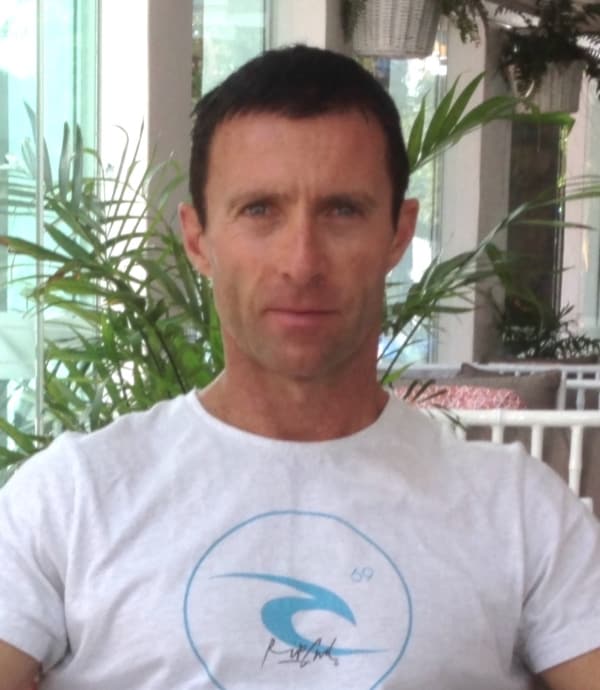KLT Level One – Live
Course Overview
Study the art and science of strengthening functional movement.
KLT Level One live courses are offered in two different formats:
- 100% Live Course: 2-day face-to-face event.
- Hybrid Course: 50% Online + 50% Live (1-day event).
Learning Objectives:
- Learn how to design and deliver highly effective functional strength training programs by utilising an integrated approach to human anatomy and biomechanics.
- Study training principles and exercises that are fully transferable across a wide spectrum of clients, including: rehabilitation, occupational conditioning or sports performance.
- Explore full-body exercises which stabilise and strengthen functional movement patterns in multiple planes of motion – following myofascial lines and respecting the kinetic link principle.
- Gain the confidence to perform and teach a selection of both home-based & gym-based workouts, including KLT full-body workouts, focus workouts and bands-only workouts.
- Utilise high-quality resources which are designed to assist you in the immediate, successful (and profitable) delivery of Kinetic Link Training to clients.
- Enjoy the benefits of following a precise functional training system – the Kinetic Link Training system.
Who is KLT Level One for?
This course is designed for all health professionals and exercise professionals who utilises exercise and functional movement restoration in the management of their clients: Physiotherapists, Myotherapists, Exercise Physiologists, Kinesiologists, Strength and Conditioning Coaches, Osteopaths, Athletic Therapists and Personal Trainers etc.
The KLT Level One (live) course is recognised by several Australian professional associations for PD credits.
Highly Practical and Interactive
All KLT courses integrate clinical reasoning and decades of practical experience with the latest in evidence-based scientific opinion, allowing participants to discover proven strategies for success.
The delivery format of all KLT professional development programs is very interactive with a significant percentage (over 50%) of every course dedicated to acquiring and mastering practical skills.
As a live course participant, you will receive:
- A selection of biomechanically balanced functional exercise programs which are adaptable for all your clients: from low level rehabilitation & movement restoration to high level occupational or sports conditioning.
- An amazing array of innovative exercises to assist your current clients to achieve great outcomes – and attract new clients.
- Everything you need to develop an additional income stream by offering functional strength training service to your clients.
- Develop a precise definition for functional training, and be able to recognise the features of functional strength training in comparison to traditional weight training.
- Explore the features of strength training required to improve functional capacity and consider precise methods of exercise selection to ensure biomechanical balance within resistance training programs.
- Understand motor control theory and the acquisition of movement strength and movement control in contrast to the training of isolated muscles.
- Acknowledge the relative lack of consistence that currently exists in exercise description and consider the use of a universal system for naming strength training exercises based on descriptions of movement rather than muscle activation.
- Recognise the value of both symmetrical and asymmetrical training – with reference to biomechanical balance, core control and functional movement literacy.
- Deliver introductory programs for clients new to full body functional training, and perform examples of suitable programs for clients with little experience in functional strength training.
- Identify common technique corrections required and key teaching cues, and recognise the link between good exercise technique and minimising the risk of client injury.
- Understand the concepts of dynamic stability and posture control and their relationship to core conditioning.
- Understand the concept of stability driven training and its influence of exercise progression and regression especially in relation to load and complexity of exercise choice.
- Understand the kinetic link principle and develop an appreciation of the myofascial sling system of the lumbo-pelvic region for developing outer unit core stability, and demonstrate an appreciation of the activation of the myofascial slings when designing exercise that require stability.
- Practice over 30 different integrated resistance training exercises – covering a diverse spectrum of movement patterns across multiple planes of motion.
- Gain confidence in both performing and teaching a wide variety of functional training exercises with good (effective and safe) technique.
- Demonstrate an understanding of how to safely progress a client from a basic rehabilitation level through to athletic strength (if required), and recognise the link between good exercise technique and minimising the risk of client injury.
- Design modifications to programs to meet the specific needs of a client – with particular reference to appropriate progression and regression of chosen exercises.
- Be able to manipulate various training variables to achieve different functional outcomes – such as: motor learning and coordination, stability & endurance, strength & hypertrophy and maximum strength.
- Explore concepts such as eccentric loading and partial range of motion training as effective methods to stimulate hypertrophy.
- Utilise functional training principles, a movement approach to exercise programming and a precise method for exercise description to design a comprehensive full body resistance-training program. A program which meets specific movement pattern requirements.
- Learn how to teach Kinetic Link Training workouts to a wide spectrum of clients over successive coaching sessions.

Your Presenter – Wayne Rodgers
Wayne Rodgers is a sports and exercise physiotherapist with over 35 years clinical experience, plus 25 years experience in presenting to professional audiences. He has been a sports physiotherapist for several national and international sports teams including the Australian Commonwealth Games team and the Australian Netball team. He is the senior sports physiotherapist and founder of Sunshine Coast Sports Physiotherapy.
 More About Wayne
More About Wayne